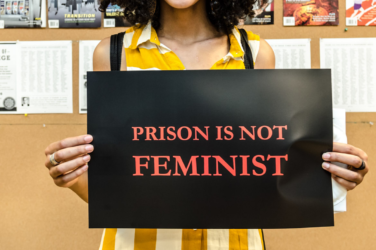After 16-year-old Sierra Landry was killed in 2013 by an abusive schoolmate she once dated, South Carolina started talking about its serious dating violence problem. The state is ranked one of the worst in terms of the number of people killed through intimate partner violence. And unlike adults, teenagers in South Carolina cannot get orders of protection against their partners.
Landry’s mother advocated for a new law—Sierra’s Law—to protect other young people from suffering her daughter’s fate. The bill failed to pass twice in the South Carolina State House, but a group of bright high school students enrolled in a Business and Law magnet program through Scholars Academy have recently brought it back to life. They worked with Representative Mandy Powers Norrell, a Democrat in Lancaster, South Carolina, to get a new version of the bill introduced for the 2019-2020 legislative session.
The bill has many positive points. It would enable teens to apply for orders of protection, though kids under 16 would need parental consent to do so. A teen dating violence educational curriculum would be added to health courses in the state. But it also boasts a provision that could end up criminally punishing kids much more harshly than adults with similar behaviors.
The bill’s text says that a minor who commits an act of violence—defined to include everything from harassment to aggravated assault to rape—will be prosecuted for the underlying act, then face a sentencing enhancement of up to 10 extra years in prison. The additional punishment is based in existing law for adult perpetrators of first-degree domestic violence: a charge reserved for cases involving repeat offenses, great bodily injury and other aggravating circumstances. Pre-trial diversion to a treatment program or restorative justice counseling, which are the most appropriate tools for incidents on the lower end of the severity spectrum, are forbidden.
Punishing minors even more harshly than adults spits in the face of the Supreme Court’s recent decisions about the kinds of punishments kids should face in court. For example, the high court held that kids under 18 cannot be given mandatory life-without-parole sentences, due to their “diminished culpability and greater prospects for reform.”
Not only that, but school resource officers, who act as police officers in schools, would be able to use the bill’s broad definition of “violence” to file trumped-up arrest reports for kids they distrust or dislike. This is the very essence of the school-to-prison pipeline, which disproportionately impacts kids of color.
South Carolina already locks kids up at more than double the rate of North Carolina or Mississippi. Many of its elected prosecutors are well-known for racial bias: Law professors found that Charleston Solicitor Scarlett Wilson disproportionately kicks Black people off juries. It was just two years ago that long-time Lexington Solicitor Donnie Myers—who thought it was acceptable to refer to a Black man as “King Kong” during a trial—was forced to retire.
If the South Carolina State House does not reject this current version of Sierra’s Law, it is setting the stage for a generational disaster.
Photo via pixabay.





Show Comments